Communities of Practice
groups of people who share a passion for something that they know how to do, and who interact regularly in order to learn how to do it better – Etienne Wenger
rOpenSci
we are a group of people who passion is open and reproducible research to everyone, buid it by everyone. And we know how to do it by creating technical and social infrastructure.
- Creating a suite of carefully vetted, federated R software tools.
- Making the right data, tools and best practices more discoverable.
- Welcoming and diverse community.
- Building capacity of software users and developers and fostering a sense of pride in their work.
- Promoting advocacy for a culture of data sharing and reusable software.

Community Manager
Facilitates the activities of a community and the interactions between community members. Community management may be considered as “in-reach” rather than “outreach” or public engagement. - CSCCE
Let’s analyze rOpenSci community
Why analyze our community?
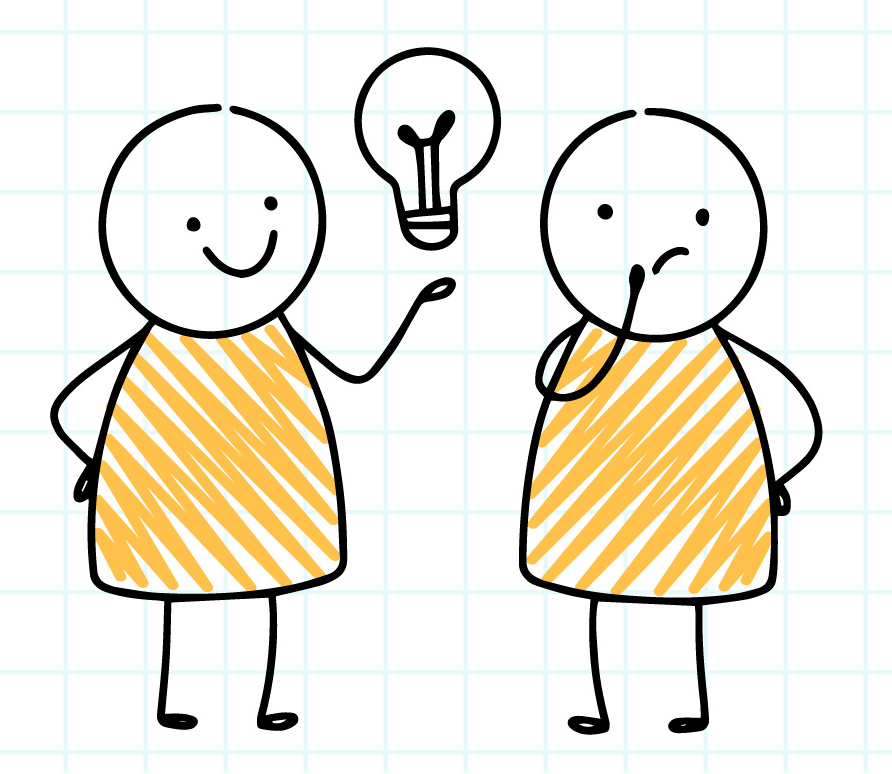
Communities are built on connections.
We need to know our community connectivity to plan targeted and effective interventions to:
- improve collaborations.
- improve information flow.
- improve knowledge reuse.
- effective knowledge (co)creation.
- effective knowledge transfer.
At a given moment in time
- Who is connected to whom? Who is not connected?
- Where, and who, are the hubs?
- Where and about what are the clusters? Are there silos?
Changes over time
- Are new connection forming?
- Are new patterns of connectivity forming?
- How was our network before and after the introduction of an activity?
How we can analyze our community connectivity?

Social Networks Analysis - Basic elements
Social Networks Analysis - Basic elements
Social Networks Analysis - Basic elements
Social Networks Analysis - Basic elements
Social Networks Analysis - Basic elements
Social Networks Analysis - Basic elements
Social Networks Analysis - Basic elements
Social Networks Analysis - Basic elements
Social Networks Analysis - Basic elements
How we can collect the data?

Path to contribute at rOpenSci

Write a blog post

Review a package
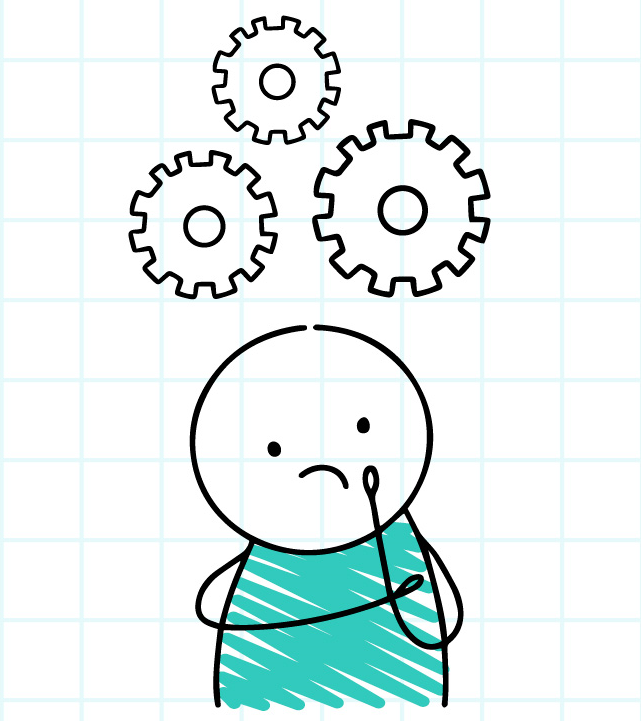
Maintain a package

Speak at a Comm Call

Become a champion

Host a coworking session
Contributions in a network

N:author. E:coauthorship

N:author, editor, reviewer. E:peer-review

N:developer. E:codevelopment.

N:speaker. E:cospeaking, coorganization

N:mentor, mentee. E:mentorship

N:participants. E: coorganization, coattendence
Data for the network

Webpage

GitHub, database

GitHub,r-universe

Webpage

Webpage, database

Webpage
Let’s see an example with the Blog
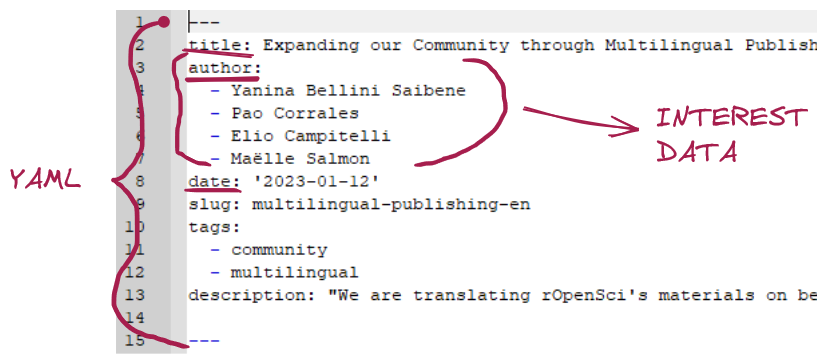
Let’s see an example with the Blog
file_list <- fs::dir_ls(path = "content/blog/", recurse = TRUE, type = "file", glob = "*.md") datos <- tibble(fecha = character(), titulo = character(), autor = character(), year = character(), contribution_type = character()) for (documento in file_list){ doc <- rmarkdown::yaml_front_matter(input = file.path(documento)) datos <- tibble::add_row(datos, fecha = doc$date, titulo = doc$title, autor = doc$author, year = as.character(year(date(doc$date))), contribution_type = 'blog post' ) } write_csv(datos, "blog_post_authors_2023.csv") # ;-)file_list <- fs::dir_ls(path = "content/blog/", recurse = TRUE, type = "file", glob = "*.md") datos <- tibble(fecha = character(), titulo = character(), autor = character(), year = character(), contribution_type = character()) for (documento in file_list){ doc <- rmarkdown::yaml_front_matter(input = file.path(documento)) datos <- tibble::add_row(datos, fecha = doc$date, titulo = doc$title, autor = doc$author, year = as.character(year(date(doc$date))), contribution_type = 'blog post' ) } write_csv(datos, "blog_post_authors_2023.csv") # ;-)file_list <- fs::dir_ls(path = "content/blog/", recurse = TRUE, type = "file", glob = "*.md") datos <- tibble(fecha = character(), titulo = character(), autor = character(), year = character(), contribution_type = character()) for (documento in file_list){ doc <- rmarkdown::yaml_front_matter(input = file.path(documento)) datos <- tibble::add_row(datos, fecha = doc$date, titulo = doc$title, autor = doc$author, year = as.character(year(date(doc$date))), contribution_type = 'blog post' ) } write_csv(datos, "blog_post_authors_2023.csv") # ;-)file_list <- fs::dir_ls(path = "content/blog/", recurse = TRUE, type = "file", glob = "*.md") datos <- tibble(fecha = character(), titulo = character(), autor = character(), year = character(), contribution_type = character()) for (documento in file_list){ doc <- rmarkdown::yaml_front_matter(input = file.path(documento)) datos <- tibble::add_row(datos, fecha = doc$date, titulo = doc$title, autor = doc$author, year = as.character(year(date(doc$date))), contribution_type = 'blog post' ) } write_csv(datos, "blog_post_authors_2023.csv") # ;-)file_list <- fs::dir_ls(path = "content/blog/", recurse = TRUE, type = "file", glob = "*.md") datos <- tibble(fecha = character(), titulo = character(), autor = character(), year = character(), contribution_type = character()) for (documento in file_list){ doc <- rmarkdown::yaml_front_matter(input = file.path(documento)) datos <- tibble::add_row(datos, fecha = doc$date, titulo = doc$title, autor = doc$author, year = as.character(year(date(doc$date))), contribution_type = 'blog post' ) } write_csv(datos, "blog_post_authors_2023.csv") # ;-)file_list <- fs::dir_ls(path = "content/blog/", recurse = TRUE, type = "file", glob = "*.md") datos <- tibble(fecha = character(), titulo = character(), autor = character(), year = character(), contribution_type = character()) for (documento in file_list){ doc <- rmarkdown::yaml_front_matter(input = file.path(documento)) datos <- tibble::add_row(datos, fecha = doc$date, titulo = doc$title, autor = doc$author, year = as.character(year(date(doc$date))), contribution_type = 'blog post' ) } write_csv(datos, "blog_post_authors_2023.csv") # ;-)file_list <- fs::dir_ls(path = "content/blog/", recurse = TRUE, type = "file", glob = "*.md") datos <- tibble(fecha = character(), titulo = character(), autor = character(), year = character(), contribution_type = character()) for (documento in file_list){ doc <- rmarkdown::yaml_front_matter(input = file.path(documento)) datos <- tibble::add_row(datos, fecha = doc$date, titulo = doc$title, autor = doc$author, year = as.character(year(date(doc$date))), contribution_type = 'blog post' ) } write_csv(datos, "blog_post_authors_2023.csv") # ;-)
Let’s see an example with the Blog

results <- datos |> group_by(titulo, year) |> filter(n() > 1) |> summarise(as.data.frame(t(combn(autor, 2)))) |> select(titulo, year, from=V1, to=V2)results <- datos |> group_by(titulo, year) |> filter(n() > 1) |> summarise(as.data.frame(t(combn(autor, 2)))) |> select(titulo, year, from=V1, to=V2)results <- datos |> group_by(titulo, year) |> filter(n() > 1) |> summarise(as.data.frame(t(combn(autor, 2)))) |> select(titulo, year, from=V1, to=V2)results <- datos |> group_by(titulo, year) |> filter(n() > 1) |> summarise(as.data.frame(t(combn(autor, 2)))) |> select(titulo, year, from=V1, to=V2)results <- datos |> group_by(titulo, year) |> filter(n() > 1) |> summarise(as.data.frame(t(combn(autor, 2)))) |> select(titulo, year, from=V1, to=V2)results <- datos |> group_by(titulo, year) |> filter(n() > 1) |> summarise(as.data.frame(t(combn(autor, 2)))) |> select(titulo, year, from=V1, to=V2)
Blog-Post full network 2013-2023
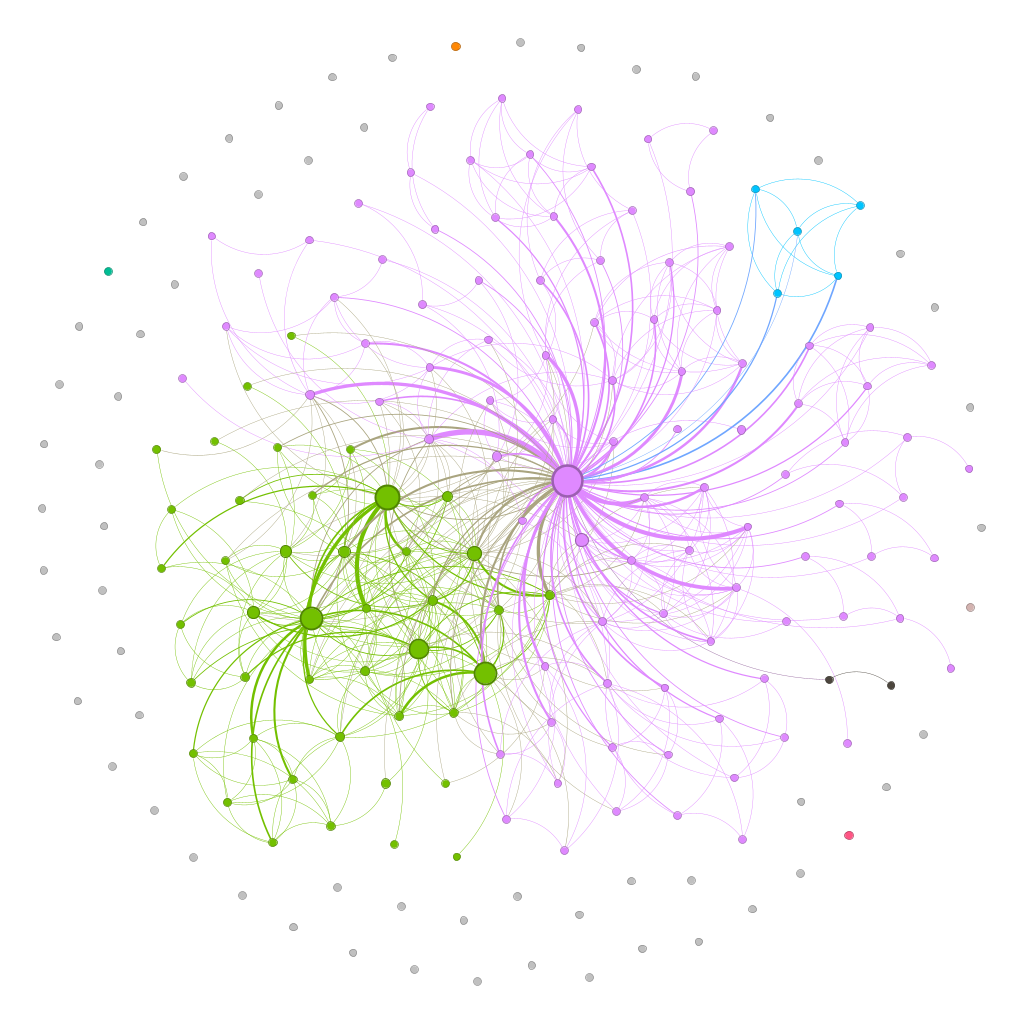
We can analyze it annually
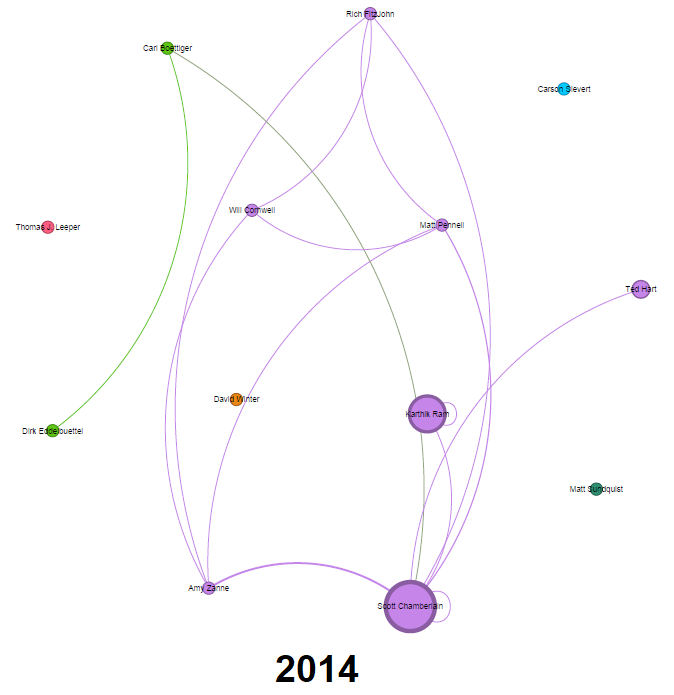
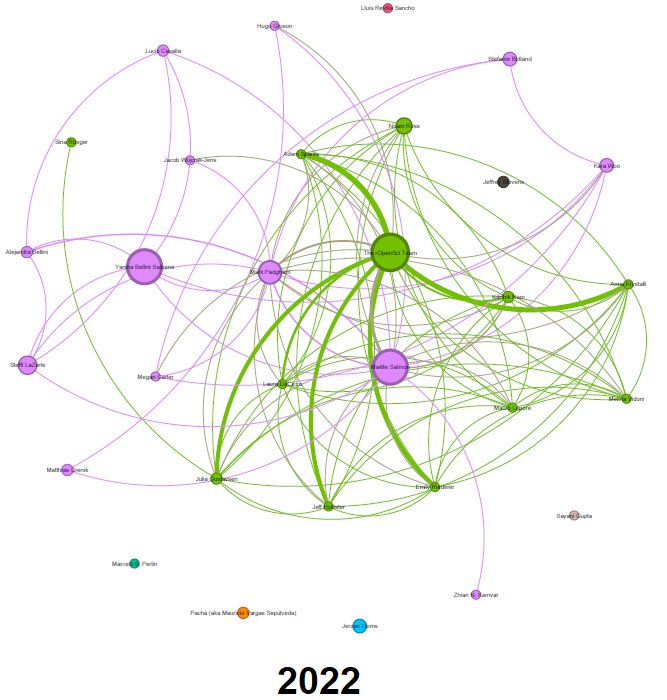
All contribution together
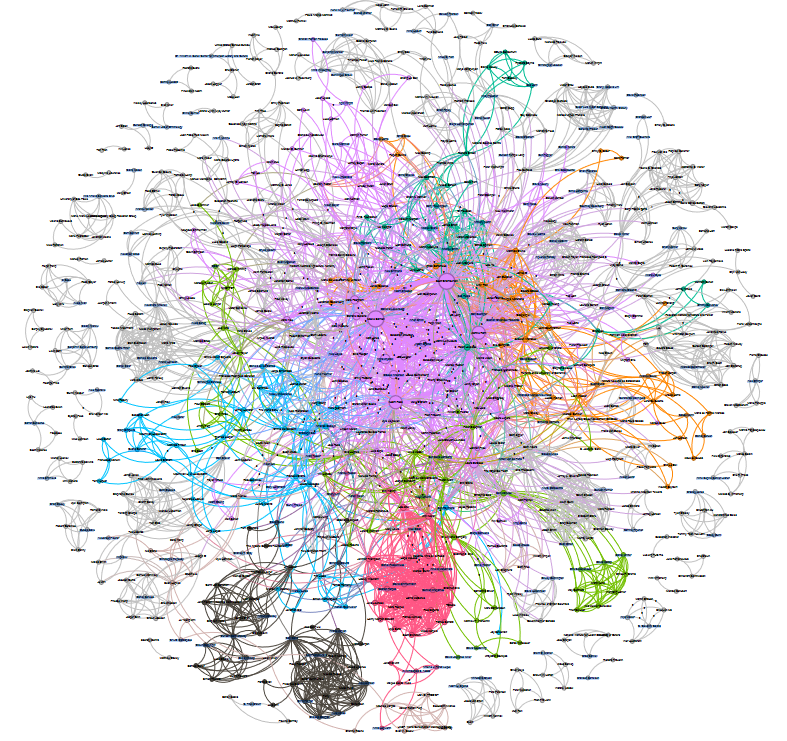
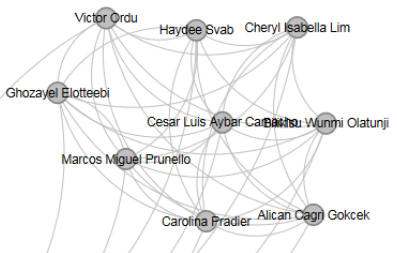 Champions first co-hort
Champions first co-hort
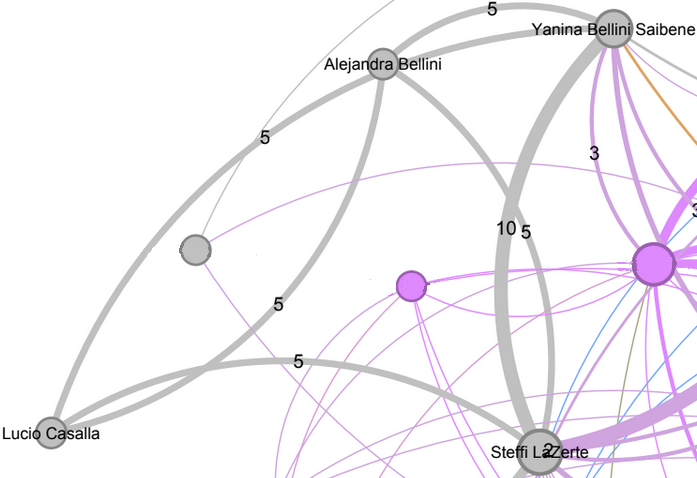
R-universe Stars Interview Team
What if you wanted to do the same for your community?

My tips
- Define the nodes in your network (people, countries, organizations, …)
- Define the type(s) of connection you have in your network.
- Start with your paths for contributions.
- Identify which contributions can be done in teams.
- Probably you are alredy registering information about those type of connection.
My tips
- You can automatize a portion of the data collection.
- Formalize the workflow (code ;-)) so you can repeat & reproduce.
- It is hard to capture all type of interactions.
- Take into account open/close/privacy of the data.
- Knowing the nodes help to undertand the clusters and the interactions.
- Lean on the people who have been in the network for the longest time.
My tips
- You can take snapshot of the network model …
- … so you can compare it at different times.
- … so you can use it for evaluating the impact of interventions and programs.
- Share what you find with your community
- … and other community managers.
¡Gracias, Thank you, Obrigada!
- Slides: https://bit.ly/csvconf2023
- GitHub: https://github.com/yabellini/CSVConfv7
- The pictures are adaptation by my 7yo son and me to images by Freepik on hand drawn style stickman set
- We use R, gephy, excalidraw and quarto for build this talk.
- Thanks to the rOpenSci Staff Team, Elio, Ale and my English Conversation Club for their feedback.


This talk is at https://bit.ly/csvconf2023
Social Networks Analysis
Group of individuals who relate to others for a specific purpose, characterized by the existence of information flows.